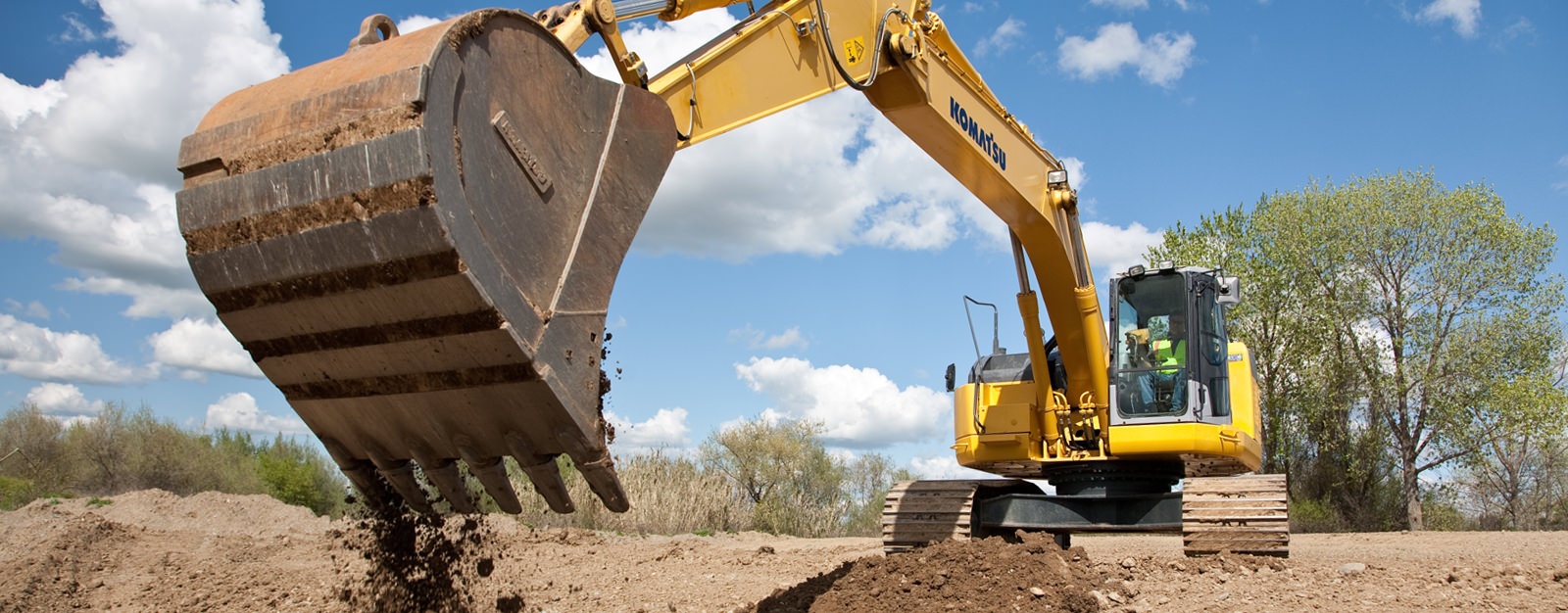Inexpensive Lancaster Excavation - Quality Excavation at Competitive Prices
Inexpensive Lancaster Excavation - Quality Excavation at Competitive Prices
Blog Article
Comprehensive Excavation Techniques: Mastering the Fundamentals for Success
In the world of building and construction and civil design, the importance of efficient excavation techniques can not be overstated. The careful preparation, precise implementation, and meticulous attention to information called for in excavation jobs demand a thorough strategy that includes numerous basic aspects. From first dirt analysis to the implementation of precaution and normal development monitoring, mastering these core components is necessary for achieving success in any type of excavation venture. Nevertheless, truth mastery lies not merely in recognizing these fundamentals but in flawlessly integrating them to browse the intricacies of excavation jobs with skill.
Comprehending Excavation Project Preparation

The preliminary phase of any excavation job is the planning stage, where vital choices are made that can significantly impact the end result of the task. Recognizing the task range, budget, and timeline restraints is important for producing an extensive excavation strategy that makes certain the job's success.
One trick aspect of excavation task preparation is the development of a thorough timeline that outlines the series of tasks, milestones, and target dates. This timeline acts as a roadmap for the task group, permitting them to track progression and make required modifications to guarantee the task stays on timetable. In addition, a well-defined spending plan that makes up all costs, including tools rental, labor costs, and products, is vital for staying clear of expense overruns and delays. By very carefully considering all these variables during the drawing board, excavation projects can be implemented successfully and properly, bring about successful end results.
Dirt Evaluation and Site Assessment
Carrying out thorough soil evaluation and site evaluation is a vital action in the preparation phase of any excavation project. Dirt analysis includes identifying the composition, framework, and residential or commercial properties of the dirt at the excavation site. This info is crucial for understanding the soil's bearing capability, moisture web content, and capacity for erosion, which are crucial consider determining the excavation approaches and devices required for the job.
Website evaluation exceeds soil evaluation and incorporates a more comprehensive evaluation of the total website conditions. This analysis consists of identifying any type of possible hazards, such as underground utilities, ecological problems, or unstable terrain, that can impact the excavation process. By completely evaluating the website, project managers can develop effective excavation approaches that prioritize safety and security, performance, and environmental management.
Making use of innovative technologies like ground-penetrating radar, dirt sampling, and drone surveys can improve the accuracy and performance of dirt analysis and website examination. Investing time and sources in these initial actions can inevitably conserve time and avoid expensive hold-ups or issues throughout the excavation procedure.
Tools Option and Use
Efficient excavation projects depend heavily on critical devices selection and usage to guarantee ideal efficiency and productivity. Picking the right devices for the work is vital in maximizing performance and minimizing downtime. Elements such as the kind of soil, depth of excavation, and task extent play a considerable function in establishing the most suitable devices for the job at hand.

In addition to picking the suitable equipment, appropriate utilization is key to task success. Operators dump truck companies in ohio must be educated to deal with the devices securely and successfully - lancaster trenching. Routine maintenance checks and timely repair services assist avoid malfunctions and guarantee constant performance throughout the project
Safety Measures and Rules Conformity
In the realm of excavation projects, prioritizing precaution and compliance with policies is critical to guaranteeing a legitimately sound and safe and secure operational atmosphere. Security measures encompass a series of practices, including conducting detailed site assessments, applying appropriate signage and barriers, and offering appropriate safety training for all employees associated with the excavation process. Adherence to guidelines, such as OSHA you can find out more needs in the USA, makes sure that the excavation task meets the needed requirements to secure employees, spectators, and the surrounding setting.

Surveillance Progress and Adjusting Methods
Exactly how can predict managers effectively track the development of excavation projects and adapt their techniques accordingly to enhance outcomes? Monitoring progression is vital for making sure that excavation tasks remain on track and satisfy due dates. Job supervisors can utilize different devices and strategies to track progression, such as everyday report card, regular site evaluations, and progressed tracking technologies like drones and general practitioners tracking systems. By constantly checking the project's innovation, managers can recognize any possible delays or problems early on and take aggressive steps to resolve them.

Conclusion
Finally, grasping the basics of detailed excavation techniques is vital for the success of any type of project. By understanding task planning, examining dirt and website problems, picking appropriate equipment, adhering to safety guidelines, and checking progression, project supervisors can guarantee a smooth and effective excavation process. Carrying out these techniques will certainly bring about successful outcomes and reduce potential risks or obstacles during the excavation task.
The initial stage of any excavation task is the planning phase, where vital decisions are made that can considerably impact the end result of the project. Understanding the job spending plan, range, and timeline restrictions is crucial for producing a detailed excavation strategy that makes certain the job's success.
Just how can forecast supervisors successfully track the innovation of excavation tasks and adjust their approaches appropriately to optimize outcomes? By very closely keeping track of progression and being ready to adjust approaches, project supervisors can boost the find here general success of excavation tasks.
By recognizing task planning, evaluating soil and site problems, choosing proper equipment, conforming with security laws, and checking progress, project supervisors can guarantee a efficient and smooth excavation procedure.
Report this page